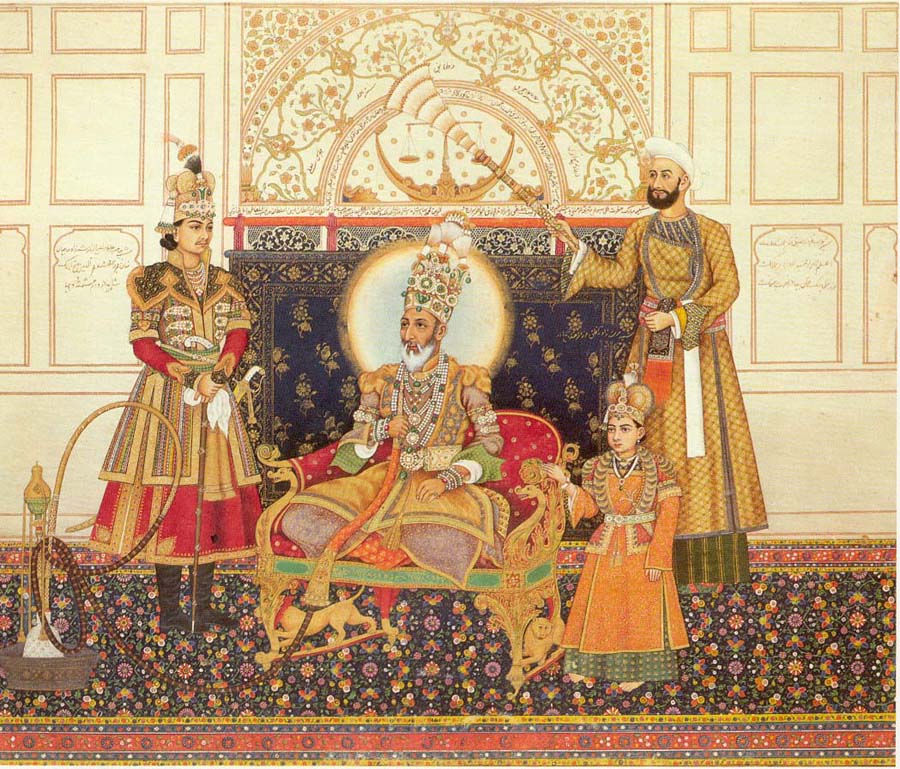Mirza Khizr Sultan on:
[Wikipedia]
[Google]
[Amazon]
Mirza Khair-ud-din Muhammad Khizr Sultan Bahadur (1834 – 21 September 1857) was a son of the last
 Born in 1834, Khizr Sultan was the ninth son of Bahadur Shah II. His mother was a palace
Born in 1834, Khizr Sultan was the ninth son of Bahadur Shah II. His mother was a palace
 Khizr Sultan was one of several Mughal princes who joined the
Khizr Sultan was one of several Mughal princes who joined the
Mughal emperor
The Mughal emperors ( fa, , Pādishāhān) were the supreme heads of state of the Mughal Empire on the Indian subcontinent, mainly corresponding to the modern countries of India, Pakistan, Afghanistan and Bangladesh. The Mughal rulers styled ...
, Bahadur Shah II.
Khizr Sultan was a prominent military leader during the Indian Rebellion of 1857
The Indian Rebellion of 1857 was a major uprising in India in 1857–58 against the rule of the British East India Company, which functioned as a sovereign power on behalf of the British Crown. The rebellion began on 10 May 1857 in the fo ...
. However, that same year he was captured and executed by the British, alongside other members of his family.
Life
 Born in 1834, Khizr Sultan was the ninth son of Bahadur Shah II. His mother was a palace
Born in 1834, Khizr Sultan was the ninth son of Bahadur Shah II. His mother was a palace concubine
Concubinage is an interpersonal and sexual relationship between a man and a woman in which the couple does not want, or cannot enter into a full marriage. Concubinage and marriage are often regarded as similar but mutually exclusive.
Concubi ...
, Rahim Bakhsh Bai.
Noted for his physical beauty, Khizr Sultan was described by his tutor Ghalib
)
, birth_date =
, birth_place = Kala Mahal, Agra, Maratha Confederacy
, death_date =
, death_place = Gali Qasim Jaan, Ballimaran, Chandni Chowk, Delhi, British India
, occupation = Poet
, language ...
as being "as beautiful as Yusuf
Yusuf ( ar, يوسف ') is a male name of Arabic origin meaning "God increases" (in piety, power and influence).From the Hebrew יהוה להוסיף ''YHWH Lhosif'' meaning "YHWH will increase/add". It is the Arabic equivalent of the Hebrew name ...
". He had some talent as a poet, in addition to his skills as a marksman
A marksman is a person who is skilled in precision shooting using projectile weapons (in modern days most commonly an accurized scoped long gun such as designated marksman rifle or a sniper rifle) to shoot at high-value targets at longer ...
. He appears to not have been favoured by his father, possibly due to his closeness with his disgraced elder brother, Mirza Fakhru.
During a Durbar in August 1852, Khizr Sultan was publicly rebuked by his father for physically abusing his wife. The prince was described as falling at the emperor's feet and begging for forgiveness. Bahadur Shah angrily struck his son two or three times before pardoning him, warning him to treat his spouse better in the future.
1857 Rebellion
 Khizr Sultan was one of several Mughal princes who joined the
Khizr Sultan was one of several Mughal princes who joined the Indian rebellion
The Indian Rebellion of 1857 was a major uprising in India in 1857–58 against the rule of the British East India Company, which functioned as a sovereign power on behalf of the British Crown. The rebellion began on 10 May 1857 in the for ...
against the British in 1857.
He was the commander of the Indian troops during the Battle of Badli-ki-Serai in June of that year. Though the rebels seemed initially favoured to win, the defection of one of the leaders of the cavalry resulted in their defeat. Khizr Sultan fled the battlefield, though his soldiers fought on before retreating to Delhi
Delhi, officially the National Capital Territory (NCT) of Delhi, is a city and a union territory of India containing New Delhi, the capital of India. Straddling the Yamuna river, primarily its western or right bank, Delhi shares borders wi ...
.
In September, Khizr Sultan, Bahadur Shah and other members of the Imperial family were taking refuge in Humayun's Tomb
Humayun's tomb ( Persian: ''Maqbara-i Humayun'') is the tomb of the Mughal Emperor Humayun in Delhi, India. The tomb was commissioned by Humayun's first wife and chief consort, Empress Bega Begum under her patronage in 1558, and designed by Mir ...
when they were captured by the British. He, along with his brother Mirza Mughal
Sultan Muhammad Zahir ud-din, better known as well Mirza Mughal (1817 – 23 September 1857), was a Mughal prince. He played a significant role during the Indian Rebellion of 1857. He was one of the Mughal princes shot dead at one of the gate ...
and nephew Mirza Abu Bakht, were taken to the Delhi Gate by Major William Hodson
William Stephen Raikes Hodson (19 March 182111 March 1858) was a British leader of irregular light cavalry during the Indian Rebellion of 1857, commonly referred to as the Indian Mutiny or the Sepoy Mutiny. He was known as "Hodson of Hodson's ...
, near an archway later nicknamed " the Bloody Gate". Hodson ordered the three princes to strip naked and, using his revolver, shot each of them twice in the heart, one after the other.
Their bodies were hanged in front of the police station for a few days, before being buried unceremoniously.
Family
Khizr Sultan had one son and two daughters: *Mirza Muhammad 'Usman Bahadur (b. 1850); **Mirza Muhammad 'Umar Bahadur; **Umda uz-Zamani Begum; *Khurshid uz-Zamani Begum; *Rahmat Sultan Begum;References
{{DEFAULTSORT:Khizr Sultan 1834 births 1857 deaths Mughal princes